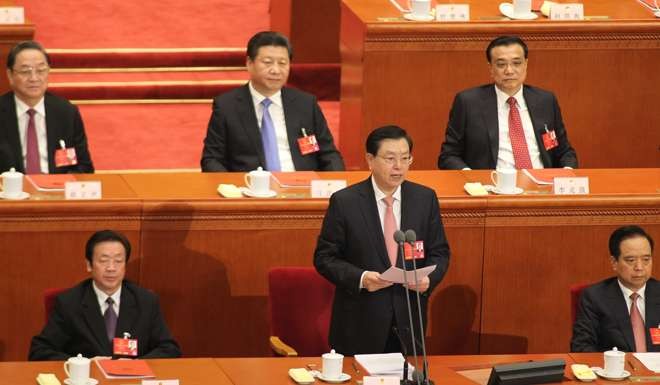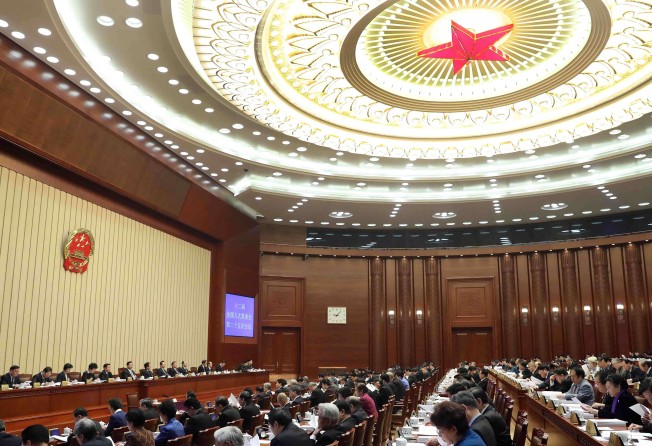
Death and corruption take big toll on China’s top legislature
Number of vacancies at National People’s Congress rises to more than 100, a sharp increase on just a few years ago

Death, corruption and voterigging scandals have thinned the ranks of China’s legislature by more than 100 lawmakers over the past four years, resulting in a sharp increase in vacancies.
According to a statement from the Standing Committee of the National People’s Congress, there are now 2,879 qualified delegates, leaving 108 vacancies to be filled.
That compared to just nine seats vacant when former president Hu Jintao handed over the reins to Xi Jinping in 2012. The total number of legislators left now is well down on the 2,987 in the NPC in 2013.
The number of disqualified delegates in this congress was previously much higher as some empty seats were filled immediately after becoming vacant.
During the 12 months from March 2015 to March last year, for example, 27 new lawmakers were appointed to fill some of the posts.
Fraud and corruption within the legislature, one of the most powerful mainland political institutions on paper but often seen as a rubber stamp in practice, were exposed under Xi’s anti-corruption campaign, the hallmark project of the president’s rule.
Analysts said the downfall of lawmakers and the exposure of money-for-power deals had further undermined the credibility of the NPC, which in theory oversees legislation, the work of the government, and the choice of state leaders.

The NPC also endorsed an interpretation of Hong Kong’s Basic Law in November that led to two localist legislators losing their seats for failing to take their oaths properly.
One of the biggest blows to the NPC was the fallout from a huge vote-rigging scandal in Liaoning (遼寧) province last year that led to the dismissal of 45 delegates in the national legislature.
The authorities found that 523 provincial lawmakers in Liaoning had helped rig elections that sent the 45 to the NPC.
The Liaoning delegates made up most of the nearly 70 delegates deprived of lawmaker status
since the annual NPC session last year.
Among the delegates who died, leaving their seats vacant, was Major General Chen Jie, a former deputy political commissar of ground forces in the PLA Southern Theatre Command, according to the Standing Committee statement.
It was the first official announcement of his death, but gave no further details.
Zhan Jing, a politics expert at the Chinese University of Hong Kong, said the NPC was a club where the rich and powerful could forge ties with government officials and other elites.
The legislature “provides the opportunity for business and political circles to have contact or even collude”, Zhan said.
Peking University governance professor Zhuang Deshui said the legislature was unlikely to clash with the Communist Party as the great majority of delegates were members.
NPC delegates are “elected” every five years, although most are simply handpicked by the party.
Qiao Mu, a communications professor at Beijing Foreign Studies University, said the legislature did not have any credibility.
“It only presents the interests of the party,” Qiao said.
The national gathering of the legislature takes place every spring and lasts for about two weeks, with nearly 3,000 deputies discussing government work reports and state policies.